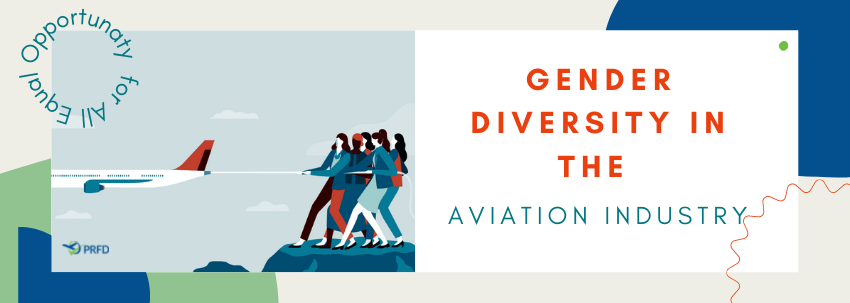Air transport is the backbone of many economies across Africa and is critical for the integration of the African continent. One of aviation’s greatest potential markets is Africa.
Africa has a young and rapidly urbanizing population of over 1.3 billion and aviation is the best, and sometimes the only, option for efficiently connecting this huge market. Therefore, stakeholders continue to put in place measures to primarily redefine and restart the travel industry. Subsequently, attainment of gender diversity and the development of skilled aviation professionals remains vital for sustainability. For this reason, the African Airlines Association (AFRAA) in partnership with Collins Aerospace staged a 2-day conference on 19-20 October to facilitate dialogue, share information, experiences and best practices to attain gender diversity and youth development in aviation.
The conference was held in virtual format under the theme: “Women and Youth Development in Aviation for a Sustainable Future”. It provided an ideal forum for air transport industry stakeholders to first take stock of the trends, second deliberate on feasible solutions to bridge the gender gap and third develop young aviation professionals for the sustainability of the air transport sector.
Gender diversity remains a work in progress; a lot needs to be done
The conference presentations revealed that women numbers are still low in STEM-related careers and women are underrepresented in leadership positions in aviation. In the world’s top 100 airlines, just 3% of airline CEOs and COOs and 8% of CFOs are women according to a study done by IATA. It is no surprise then, that gender diversity in aviation is a work in progress, with slow improvements witnessed in the last decade, a lot more needs to be done.
Mr Abdérahmane Berthé – AFRAA Secretary General, in his remarks stated: “The ICAO and the UN Sustainable Development Goals (SGDs) underscore the importance of gender equity to spur economic growth and promote social development. There is need to make the aviation industry more gender balanced at the national, international and global levels. Investing in women and youth has a multiplier effect on productivity as well as sustainable growth. For this to happen, governments, companies, organizations and all development actors need to enter a meaningful process of concrete actions.”
“Regarding the subject of youth, the development of skilled professionals in the aviation and aerospace industry in Africa is critical as a large contingent of the current aviation professionals will retire and the aviation growth will require more qualified and competent professionals. The Continent needs to train, develop and groom youth to meet the African global needs of the aviation industry of tomorrow,” Mr Berthé added.
Call to action
Therefore, the forum articulated in regard to recommendations for action by the industry:
Actions for gender diversity
1. Training
i. Empowerment of women in aviation through training.
ii. Job and career fairs for women, youth and those with disabilities.
iii. Subsidies in training to facilitating access to learning and education
iv. Continuous learning and adoption of online training for skilling and re-skilling.
2. Collaboration across the industry
i. Call to all African airlines to sign up for the IATA 25by2025 initiative.
ii. Events and dialogue among stakeholders for collaborative measures on women empowerment in aviation.
3. Leadership and policy actions
i. Gender diversity commitment at Board and leadership level.
ii. Introduction and implementation of gender inclusivity programs.
iii. Deliberate policies on women empowerment at State level and at organization level.
iv. Enhancement of mentorship programs.
Actions for youth development
1. Financing
i. Creation of an African Air Transport Fund to invest in skill development of the next generation aviation professionals in Africa.
ii. Prioritization of aviation at government level and more support by governments to training initiatives.
iii. Enhance access to scholarship opportunities and adhere to transparent processes.
2. Training
i. Promotion of the Next Generation Aviation Professional (NGAP) program to blossom next generation aviation professionals,
ii. Tap into the Instructor Development Program for AFRAA Member Airlines (IDPA) for cost-effective training,
iii. Enhancement of mentorship by role models.
iv. Partnership drives/initiatives with schools.
v. Global entities to avail opportunities for youth development to African beneficiaries.
3. Communication
i. Communication and engagement of youth at early ages into aviation careers through outreach programs.
ii. Events and networking to share perspectives and deliberate on opportunities and actions.
4. Employment opportunities
i. Call to airlines and aviation organizations to facilitate students to obtain on the job experience.
ii. Call for apprenticeship programs by aviation entities and corporates to young aviation professionals.
The important conference brought together over 300 participants comprising of Travel and Tourism fraternity in Africa and across the globe.
For more articles on the aviation industry and beyond make sure to visit our Blog page.


